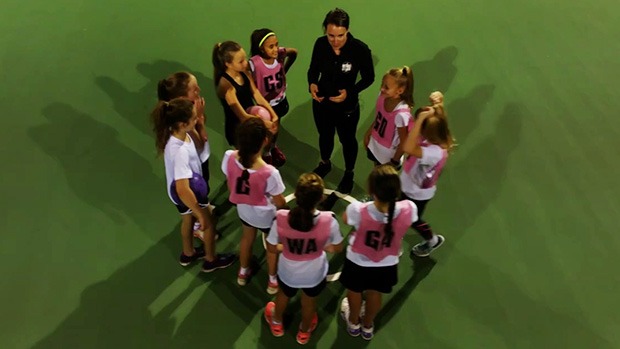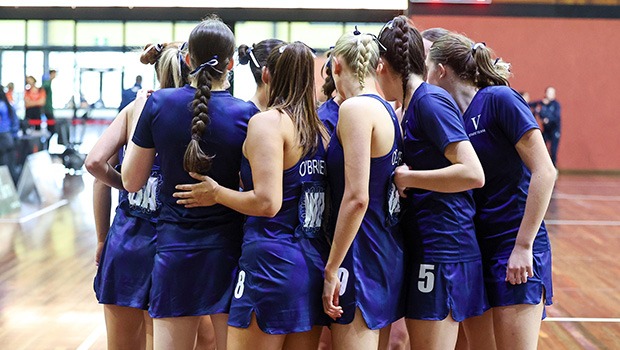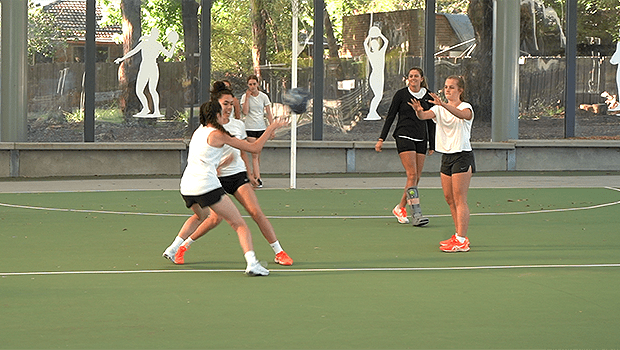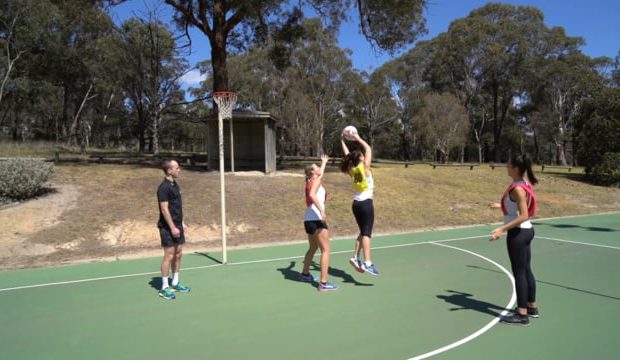
Have you ever had one of those seasons where having all of your players at a training session feels like a novelty, rather than the norm?
One week a player’s on holiday, the next it’s two players who are sick, or you get a message 10 minutes before training saying someone can’t get there. Or worse, you don’t receive a message and they never turn up.
The issue of training attendance rears its head at most netball clubs every single season.
Sometimes it’s the same players missing regularly, while other years it’s a merry-go-round where a different player seems to jump off every week.
400+ NETBALL DRILLS: REGISTER NOW TO ACCESS ALL OF OUR COACHING VIDEOS
Of course, the occasional illness or family emergency can’t be helped, but if you’re having consistent issues with attendance, chances are there are probably some underlying reasons for it.
Here are some ways you might consider tackling netball training attendance within your team or club.
WHAT’S THE TEAM ABOUT?
Not every team has the same underlying aims or ethos.
At representative level, players are probably taking their netball relatively seriously and therefore training is a commitment they acknowledge is a part of what they’ve signed up for. But for more social teams, there may not be that same expectation.
In some cases, there are clubs that have a clear distinction between two types of teams: higher teams are considered ‘serious’ and are expected to train every week, while other players are happy to play in lower teams, with an understanding that players either won’t train, or that training is optional.
If your club can make this arrangement work, that’s fantastic. Just be sure that players are aware of what their team’s philosophy is, because there’s nothing worse than being one of only three or four players who come to training every week.
If you make training optional, you need to fully expect that there will be players who don’t attend even one session.
COMMITMENT COMES FROM THE TOP
The number one rule when it comes to commitment is that the most committed person on the team has to be you, the coach!
There’s no chance you’ll ever get your players attending consistently if the coach misses every third or fourth session.
Unfortunately it comes with the territory – if you take on a team, you block out that weekly time slot in your diary for the entire season.
ESTABLISH THE CLUB’S POLICY
Often issues with attendance stem from not having a set of rules or protocols in place for what should occur when a player misses a session.
Does your club have a policy that provides a clear directive for coaches and players?
At many clubs, the consequences of missing training are simple: if you don’t train, the most court time you’ll receive is half a game. If trainings are repeatedly missed, you’re not guaranteed any court time.
DAN RYAN: HOW TO DEAL WITH REDUCED NUMBERS AT TRAINING
I’ll often explain to teams at the very first session or information day that it’s not about punishing the player who doesn’t attend – it’s about rewarding the players who do. Those players were at training and have things to implement on court from that session, and it’s difficult for them to do that when other players weren’t there to work on those skills or structures as a team. Why should someone else’s non-attendance impact a player’s potential to put out their best netball?
So as a committee or coaching group, sit down and work out what your policy is, put it in writing and have the players and parents sign it as part of their codes of conduct (you should have those as well!).
BE CLEAR FROM THE START
Before training begins for the season, gather all players and parents together and be crystal clear about the club’s expectations around training attendance, as well as outlining the process that will be followed if players don’t attend.
For under-age teams, having the parents there is critical. Remember, when you’re coaching under-age netballers, often it’s not the player that determines whether they’ll be attending training. It’s mum and/or dad.
If you’ve been very clear and open about the club’s policy, there’s less likelihood that you’ll have people crying foul when you follow through with it.
A CONSISTENT CLUB APPROACH
Often the challenge that coaches face when preaching the importance of training attendance is that some players have come through other teams at the same club where the same rules weren’t enforced.
It may not have mattered if they missed a few sessions last year, because their coach played them for four quarters regardless. And now you’re trying to tell them it’s not OK that they give a few trainings a miss? Good luck!
If you’re a 15/U coach and you’re not getting the same buy-in on club policies from the 13/U coaches, for example, you’re almost certain to have problems when their players reach you the following year.
So ensure that club policies are followed consistently by all coaches across all teams. That way everyone should be full on board with the club’s expectations before the new season even starts.
MAKE YOUR SESSIONS ‘UNMISSABLE’
You won’t find this in any club policy or information booklet.
But half the battle of getting buy-in from your players at training is making sure your sessions are as good as they can possibly be (or close to it).
If players are engaged, learning something new every week and enjoying themselves, there’s a much better chance of them turning up consistently. But if there’s a lot of talking and standing around or they’re not being challenged and there’s no fun, it won’t take long before numbers start dropping away.
OUT OF IDEAS? CHECK OUT OUR FULL SESSION VIDEOS
So that’s on you.
Put the time into planning your sessions so that the skills and drills progress each week, the sessions flow well and have some relevance to what’s happened at previous games or trainings.
If players can see that as a team you’re working on skills that they need in order to improve, they’re far more likely to show up each week, eager to tackle the next challenge you put in front of them.





